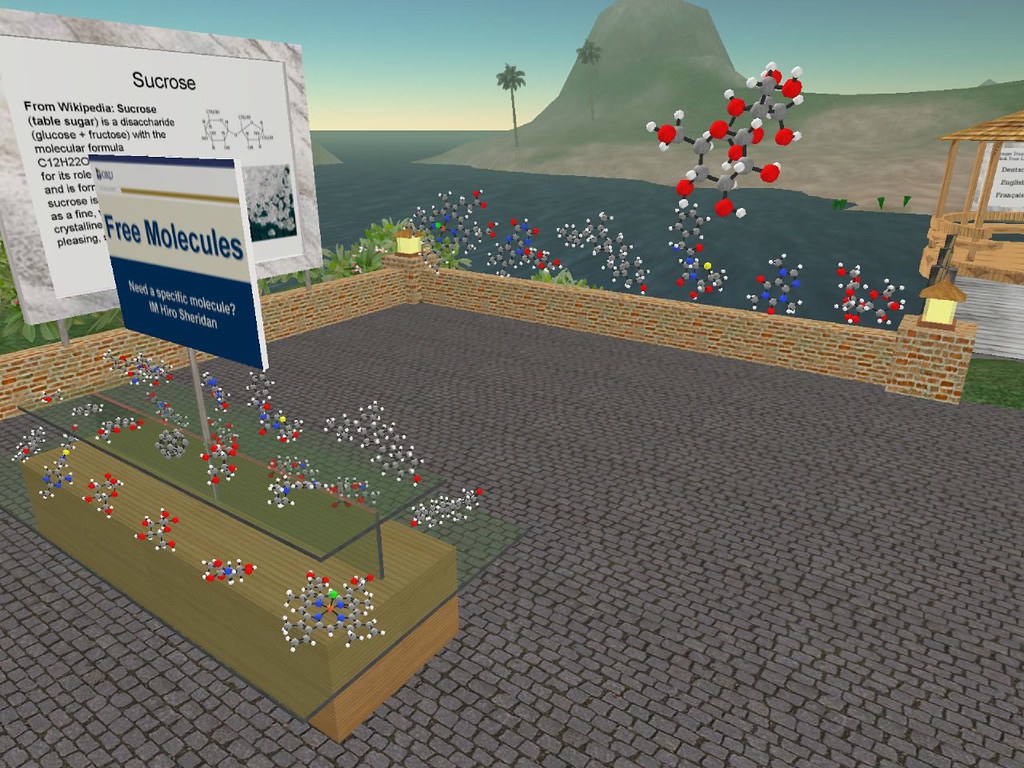
Have you ever wondered about the intricate connections between nature and the molecular world? The concept of a "molecule hidden in second nature" invites us to explore the relationship between life forms and the fundamental building blocks of matter. From the smallest microorganisms to the vast ecosystems of our planet, molecules play a critical role in sustaining life. Understanding these connections not only reveals the complexity of life but also highlights the significance of preserving our natural environment. In this article, we will delve into the various aspects of this fascinating topic, examining the unseen molecules that govern our world and how they are intertwined with our everyday experiences.
The hidden molecules in our environment are often overlooked, yet they constantly interact with us. They are not just found in laboratories or textbooks; they are present in the air we breathe, the food we eat, and even in our own bodies. The study of these molecules allows us to uncover the secrets of life and the processes that sustain it. By understanding the molecular interactions that occur in nature, we can gain insights into the delicate balance of ecosystems and the health of our planet.
As we embark on this journey of discovery, we will ask critical questions about the role of these hidden molecules, exploring their functions, significance, and the ongoing research that seeks to unveil their mysteries. Join us as we navigate through the fascinating world of molecules hidden in second nature, shedding light on the unseen forces that shape our existence.
What Are the Molecules Hidden in Our Environment?
To comprehend the concept of a "molecule hidden in second nature," we must first define what these molecules are. Molecules are the smallest units of a chemical compound, consisting of two or more atoms bonded together. They are the fundamental building blocks of matter and play essential roles in various biological processes. In our environment, these molecules can be found in various forms, including:
- Water (H2O)
- Carbon Dioxide (CO2)
- Oxygen (O2)
- Glucose (C6H12O6)
How Do These Molecules Impact Ecosystems?
The molecules hidden in second nature play a crucial role in maintaining the balance of ecosystems. They are involved in various processes, including:
- **Photosynthesis**: Plants utilize sunlight, carbon dioxide, and water to produce glucose and oxygen, which are essential for life on Earth. - **Respiration**: Animals and humans breathe in oxygen and release carbon dioxide, contributing to the cycle of life. - **Nutrient Cycling**: Molecules such as nitrogen and phosphorus are vital for plant growth and are recycled throughout ecosystems.What Are the Consequences of Disrupting These Molecules?
Human activities, such as pollution and deforestation, can disrupt the delicate balance of these molecules, leading to environmental degradation. Some consequences include:
- **Climate Change**: Increased carbon dioxide levels from fossil fuel combustion contribute to global warming. - **Biodiversity Loss**: Habitat destruction can lead to the extinction of species that rely on specific molecular interactions for survival. - **Water Quality Issues**: Contaminants can alter the chemical composition of water, affecting aquatic life and human health.Who Are the Pioneers in the Study of Environmental Molecules?
Several scientists have contributed significantly to our understanding of environmental molecules and their role in ecosystems. Some notable figures include:
- **Rachel Carson**: Her groundbreaking book "Silent Spring" raised awareness about the effects of pesticides on the environment. - **James Lovelock**: He proposed the Gaia Theory, which suggests that living organisms interact with their inorganic surroundings to maintain conditions for life. - **Elinor Ostrom**: The first woman to win the Nobel Prize in Economic Sciences, she studied how communities manage common resources sustainably.What Modern Technologies Aid in Discovering Hidden Molecules?
Advances in technology have revolutionized the study of molecules in our environment. Some key tools include:
- **Mass Spectrometry**: Used to identify the composition of complex mixtures by measuring the mass-to-charge ratio of ions. - **Nuclear Magnetic Resonance (NMR) Spectroscopy**: Helps determine the structure of organic compounds by observing the magnetic properties of atomic nuclei. - **Environmental DNA (eDNA) Analysis**: A technique for detecting genetic material from organisms in environmental samples, aiding in biodiversity assessments.How Can We Protect the Molecules Hidden in Second Nature?
Preserving the delicate balance of molecules in our environment is essential for sustaining life. Here are some steps we can take:
- **Reduce Pollution**: Implementing stricter regulations on emissions and waste disposal can help maintain air and water quality. - **Conserve Biodiversity**: Protecting natural habitats and promoting sustainable practices can ensure the survival of various species that rely on specific molecular interactions. - **Educate and Advocate**: Raising awareness about environmental issues and advocating for policy changes can drive collective action towards a healthier planet.Conclusion: Embracing the Molecule Hidden in Second Nature
In conclusion, the "molecule hidden in second nature" represents the intricate web of life that connects us to our environment. Understanding these hidden molecules is essential for appreciating the complexity of ecosystems and the importance of preserving them. As we continue to explore the molecular world, we must recognize our responsibility to protect the delicate balance that sustains life on Earth. By taking action to safeguard our environment, we can ensure a healthier future for generations to come.
ncG1vNJzZmivp6x7p7XGoaugqpGlva2x05qnZ5ufonyku82tnKespJqwqX2OpqalnZOquaZ5x6KbnZ2eYravedKemqimlGK7osDUq5xnoKSiuQ%3D%3D